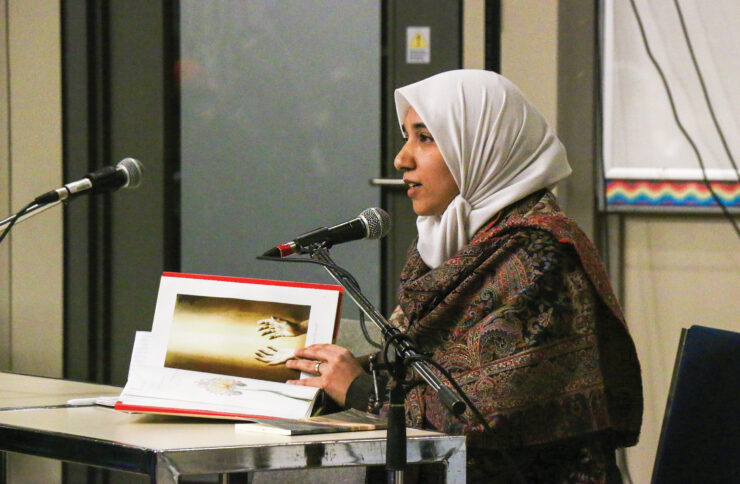Netflix series sparks online defense of stalker
On Dec. 26, 2018, Netflix premiered a 10 episode series, titled You, that follows the life of a seemingly love-stricken protagonist who stalks an unsuspecting 20-something year old as he manipulates her, and forces himself into her life.
While the series tackles some important and complex issues, the reaction by some media outlets has been to cast the protagonist as repulsively alluring, or to focus on the narrative about whether the stalker is really attractive, or not—but, that can diminish the importance of the larger issue at hand.
According to Julie Lalonde, a women’s rights activist and a two-time victim of stalking, the show is inherently problematic in the way that it portrays stalking without most of its harmful psychological effects.
“I think it’s recreating a lot of these really damaging and dangerous tropes that stalking is about romance,” she told the Fulcrum. “Even in the context to which there might be some indication of (creepiness to the stalker’s actions), it’s never really pushed to the degree which we actually see how terrifying it really is.”
Indeed, You is structured in such a way that viewers are meant to feel empathy for the stalker, as they are forced to see things from his perspective, and feel suspense as he narrowly avoids being caught. Yet, what is absent for the greater part of the show, is the everyday harm that victims of stalking feel.
“There’s a paranoia that is oftentimes seen by people as unjustified,” said Lalonde. “So, then it starts to play with your mind, (and) then you start to doubt your own perception of reality … (you become) hypervigilant at all times … so it really gets in your head whether they’re actually watching you or not.”
“That feeling doesn’t go away when the stalking stops because that person decided to move on, that person got incarcerated, (or) in my case, (when) it ended because he died,” Lalonde continued. “I didn’t just wake up the next day and shed all of those habits that I had accrued over all of those years, (because) it’s really hard to basically deprogram yourself from that feeling that you’re constantly being watched—not to mention the impact that it has in terms of things like how you approach social media (and) all of those things.”
To have a prominent Netflix series which diminishes the gravity of these issues has been frustrating, Lalonde admitted. “It’s really frustrating for folks who are living this every single day, in a world in which the justice system doesn’t take it seriously, (and) often times our friends and family don’t take it seriously.”
“From my understanding, part of what’s problematic about the show is that they frame the victim in a way that she doesn’t look that great, so you get the idea that she’s not perfect either—all of those things contribute to keeping victims silent,” she said.
Lalonde explained that, through her experience as a victim and advocate for those who have been stalked, she does not think that Canadian society takes stalking seriously enough—both culturally and legally.
“There’s no resources, there’s no ads, there’s no posters. There’s truly nothing on this issue that is impacting so many people—particularly women,” Lalonde explained. “So it’s massive, it’s so common, and we just don’t talk about it.”
To raise awareness, Lalonde created a video titled “Outside of the Shadows: A Project of Criminal Harassment in Canada” that explains her story of being stalked for a decade, and gives advice for those being stalked.
Yet, for those other victims going through stalking right now, while the Netflix series continues to air and be talked about, Lalonde offered words of compassion and support.
“A lot of people are going through this (and) a lot of people are angry with how the narrative is playing out,” she said.
“So, you’re not alone, you’re not crazy, and it’s truly not your fault. Myself, and folks like me, are fighting for you, we’re trying to change the narrative, and we’re trying to change the conversation, we’re trying to change the laws. So, don’t treat it like you’re alone here.”





